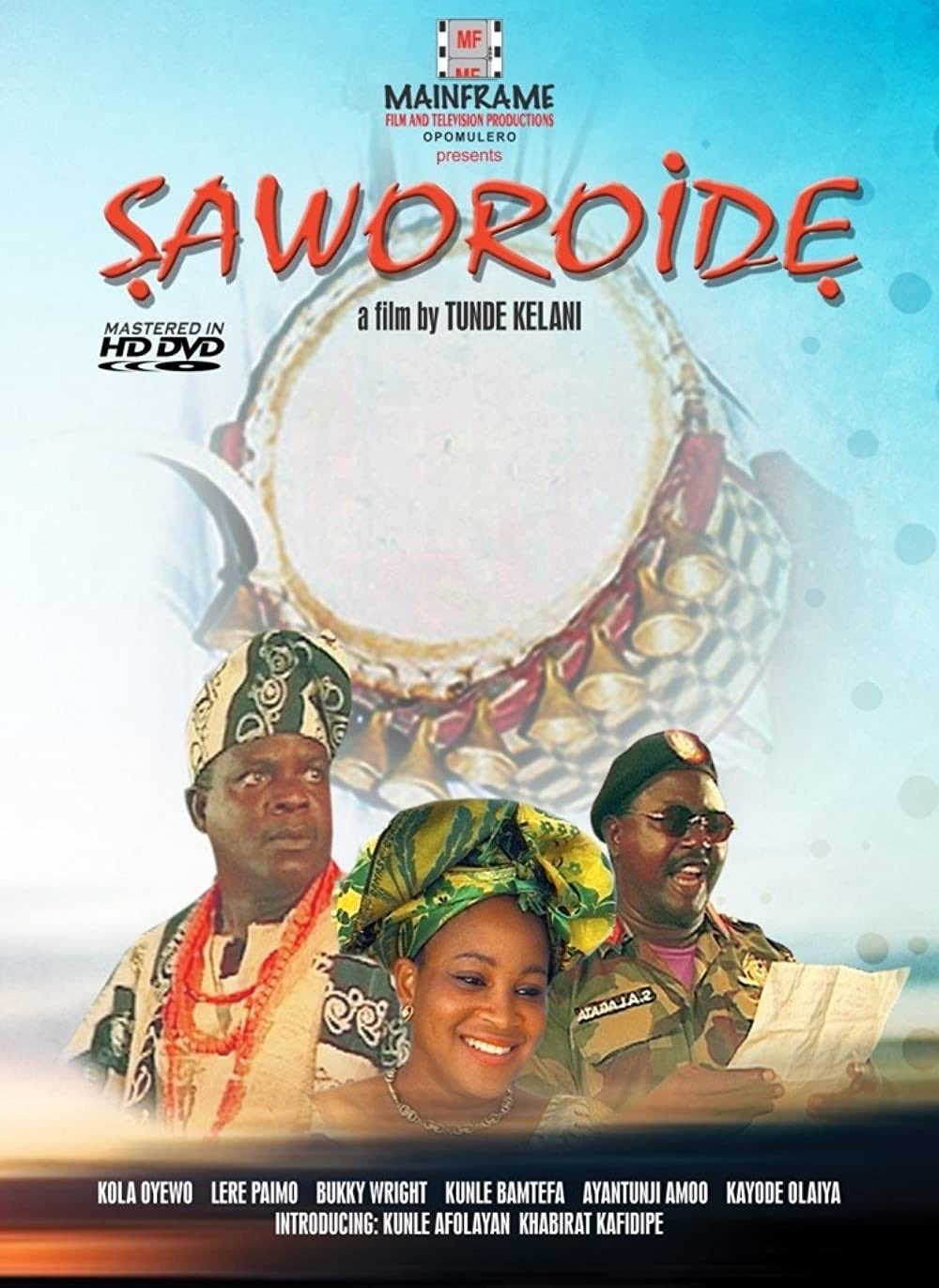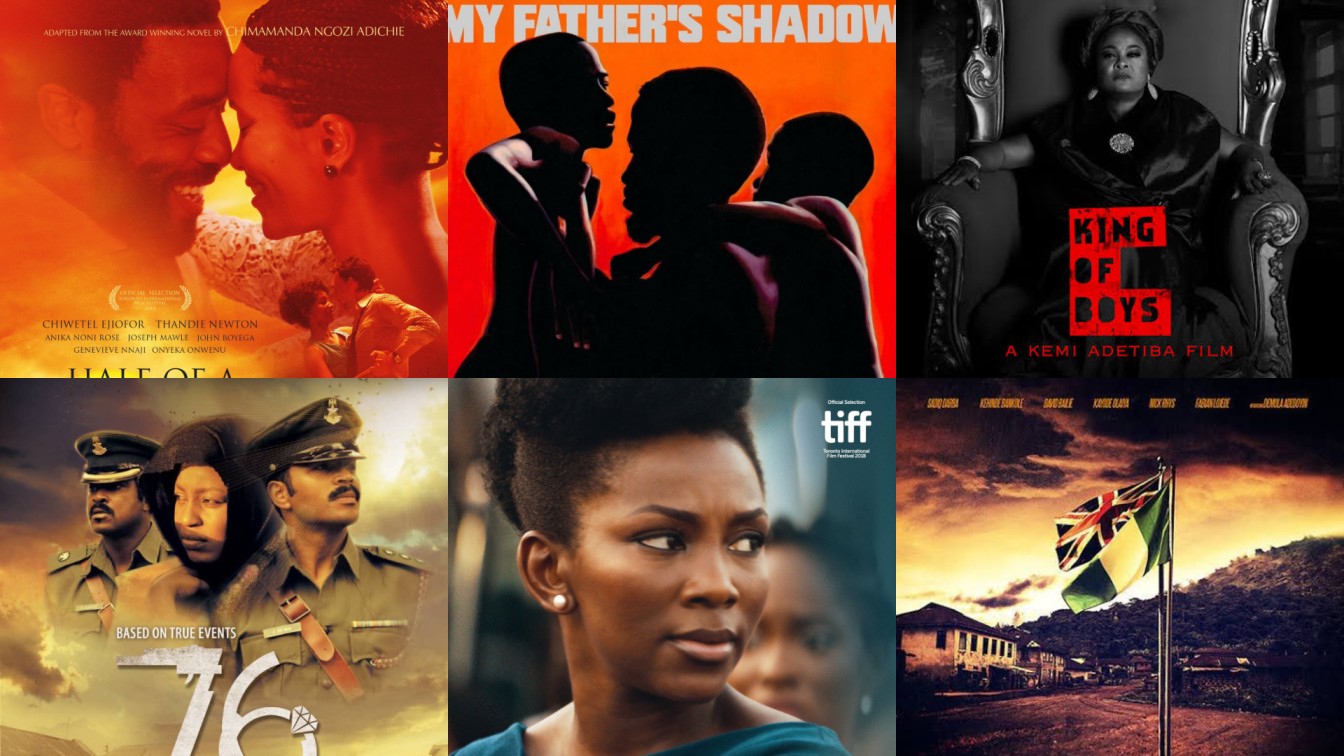Nollywood, in telling these stories, reminds us that freedom is not an inheritance; it is a struggle renewed every day.
By Joseph Jonathan
Independence is never just a historical event (even though it is today). It is a living condition — something nations fight to preserve, something individuals struggle to achieve, and something communities negotiate every day. Nollywood, with its vast catalogue of stories, has consistently grappled with these questions of freedom, identity, and self-determination.
From political thrillers set against Nigeria’s turbulent military regimes, to quiet dramas of women finding their voices, to comedies and romances where self-discovery is the ultimate liberation, Nigerian cinema has provided countless mirrors of what it means to break free.
Independence can mean different things in these stories: for some, it is about nationhood and history, for others it is about personal growth, and for many women characters it is about shattering patriarchal constraints. Together, these films remind us that freedom is never singular — it is political, personal, and collective.
These films, whether set in history’s grand theatre or in the intimate spaces of family and self, circle around the same truth: independence is never final. It must be defended, redefined, and rediscovered across generations. Nollywood, in telling these stories, reminds us that freedom is not an inheritance; it is a struggle renewed every day.
On this occasion of the 65th anniversary of Nigeria’s Independence Day, Afrocritik presents 25 Nollywood films that explore nationhood, independence, and self-discovery. Divided into three thematic strands, the list reveals how the industry has wrestled with the legacies of colonialism, the scars of dictatorship, the resilience of selfhood, and the ongoing struggle for equality.
National Independence, History & Politics
October 1 (2014)
Kunle Afolayan’s period thriller is set on the eve of Nigeria’s independence. When a string of murders in a remote Western Nigeria town of Akote threatens to overshadow the new nation’s birth, Danladi Waziri (Sadiq Daba), a police officer from Northern Nigeria, is sent to investigate.
The film digs into the anxieties of the transition from colonial rule to self-rule. Beneath the crime mystery lies a portrait of a country haunted by violence and division, even as it prepares to declare freedom.
’76 (2016)
Set in the aftermath of the 1976 coup and assassination of General Murtala Mohammed, Izu Ojukwu’s film captures the paranoia of military rule.
Through the story of Captain Joseph Dewa (Ramsey Nouah), accused of treason, and his wife, Suzie (Rita Dominic), the film interrogates loyalty, sacrifice, and the human toll of political instability. It is as much a love story as it is a reminder of Nigeria’s fragile democracy.
Half of a Yellow Sun (2013)
Adapted from Chimamanda Ngozi Adichie’s acclaimed novel, Biyi Bandele’s film portrays the Biafran War through the lives of two sisters.
The story captures the cost of fractured independence — when a nation’s quest for self-determination devolves into conflict. It is a sweeping portrait of love, war, and the fragility of national identity.
The Herbert Macaulay Affair (2019)
Imoh Umorenʼs historical drama traces the life of Herbert Macaulay, widely regarded as the father of Nigerian nationalism.
By dramatising his battles with colonial authorities, the film foregrounds the intellectual and political roots of independence. It reminds us that freedom was not granted, but demanded through relentless activism.
Funmilayo Ransome-Kuti (2024)
The Bolanle Austen-Peters-directed biopic captures the life of one of Nigeria’s most formidable freedom fighters.
As a teacher, activist, and mother, Funmilayo Ransome-Kuti fought against colonial taxation and patriarchal constraints. The film situates women at the heart of Nigeria’s independence story, expanding the narrative beyond male politicians and generals.
The Milkmaid (2020)
Nigeria’s Oscar submission for 2021, Desmond Ovbiagele’s The Milkmaid tells the story of two sisters navigating abduction and radicalisation in the insurgency-plagued Northeast.
It interrogates what freedom means in contexts where violence, extremism, and ideology curtail agency — reminding audiences that independence is also a contemporary struggle.
4th Republic (2019)
This political thriller foregrounds the fragility of Nigeria’s democracy decades after independence.
Centred on a female gubernatorial candidate, Mabel King (Kate Henshaw), fighting against electoral malpractice, 4th Republic highlights the distance between the promise of self-rule and the realities of corruption.
Your Excellency (2019)
Funke Akindele’s directorial debut is a satirical comedy that lampoons Nigeria’s political class, exploring how personality cults, social media, and populism shape electoral politics.
While light-hearted, the film critiques how freedom of choice can be manipulated by spectacle and media spin.
Stubborn Grasshopper (2001)
Directed by Simisola Opeoluwa, the two-part political drama is a thinly veiled retelling of General Sani Abacha’s dictatorship. Through fictionalised characters and events, it captures the fear, repression, and absurdities of authoritarianism. In doing so, it reflects on what independence means under the weight of internal tyranny.
State of Emergency (2004)
Directed by Teco Benson and starring J.T Tom West and Saint Obi, this action thriller depicts Nigeria under siege by terrorism and corruption. The story follows a group of dissatisfied soldiers who morph into terrorists, invading towns and disrupting peace through acts of kidnapping and murder.

Their most audacious move comes when they abduct and hold nine ministers hostage. While less subtle than its historical counterparts, the film dramatises how fragile freedom becomes when security collapses, highlighting the constant negotiation between liberty and survival.
Saworoide (1999)
Tunde Kelani’s Yoruba classic uses allegory to critique military dictatorship. Set in the fictional town of Jogbo, where rulers must undergo a sacred ritual involving the saworoide drum, until power is seized illegitimately, and calamity follows.

The film brilliantly weaves tradition with political commentary, suggesting that true independence requires accountability to both people and culture.
Executive Crime (2000)
Directed by Teco Benson and starring Alex Usifo, Tony Umez, and Saint Obi, this thriller unpacks corruption at the highest levels of government, showing how greed and abuse of power undermine the very idea of independence.
By spotlighting elite impunity, the film insists that freedom is meaningless if ordinary citizens remain oppressed by their leaders.
Personal Independence, Self-Discovery & Identity
Eyimofe (This Is My Desire) (2020)
Arie and Chuko Esiri’s acclaimed debut tells parallel stories of two Lagosians dreaming of a better life abroad.
Though their journeys are marked by hardship and disappointment, the film becomes a meditation on resilience and agency — what independence means in the face of systemic inequality.
At Ease (2024)
In Seun Richardsʼ directorial debut, Samuel Asa’ah plays Major Ifeanyi Agbo, a soldier battling PTSD after a terrorist attack.
Haunted by trauma, alienated from his family, and driven to the brink of suicide, his journey toward therapy and healing is one of the most intimate depictions of personal liberation in Nollywood. Independence here is not political but psychological — freedom from the shackles of memory and despair.
Dazzling Mirage (2014)
Tunde Kelani adapts Olayinka Abimbola Egbokhare’s novel about a young woman living with sickle cell anaemia.
More than a medical drama, it is a story of self-definition: refusing to be limited by illness, she fights for love, career, and dignity. It is a celebration of resilience and independence.
Kasala! (2018)
Ema Edosio’s coming-of-age comedy follows a group of boys who “borrow” their uncle’s car for a joyride, only to wreck it.
Their frantic attempts to fix the situation reveal both youthful recklessness and the drive for self-determination. It is a slice of Lagos life that turns everyday chaos into a metaphor for freedom.
Green White Green (2016)
Abba Makama’s playful satire follows three restless youths dreaming of becoming artists.
Through absurdist humour and political commentary, the film explores the uncertainty of post-independence Nigeria, where young people must craft their own identities amid national instability.
My Father’s Shadow (2025)
The first-ever Nigerian film to be selected for the Cannes Film Festival and winner of Special Mention for the Caméra d’Or, Akinola Davies Jr.’s My Father’s Shadow is a subtle but powerful drama that explores family, memory, and the spiritual threads that connect the living and the dead.
The story follows two young brothers spending a transformative day with their estranged father, Folarin (Ṣọpẹ́ Dìrísù), as they navigate 1993 Lagos and uncover the complexities of his life. Beyond its historical and spiritual layers, the film is also a meditation on self-discovery — how personal independence often emerges from confronting family legacies and choosing which parts of the past to carry forward.
Mr and Mrs (2012)
Directed by Ikechukwu Onyeka, this domestic drama portrays a marriage that begins with love and trust but quickly unravels under the weight of wealth, pride, and neglect. What follows is a bitter portrait of an African woman’s struggle to retain and sustain her marriage at all costs.
Yet the film moves beyond the surface of marital conflict to probe deeper questions of agency and self-worth. As the wife eventually reclaims her dignity and asserts her independence, Mr and Mrs reframes freedom in intimate terms — the courage to break the confines of toxic relationships and rediscover one’s identity.
Isoken (2017)
Jade Osiberu’s Isoken is a romantic comedy that interrogates the cultural expectations placed on unmarried women in Nigeria. The titular character, though beautiful, successful, and independent, is constantly pressured by her family to marry, preferably within her tribe.
When she finds herself torn between Osaze, the “perfect” suitor, and Kevin, a white man who represents an unconventional choice, Isoken must decide whether to follow tradition or her heart. In refusing to let her happiness be dictated by cultural norms, the film celebrates self-determination and reframes independence in more personal terms: the right to choose love on one’s own terms.
Women’s Empowerment & Liberation
Citation (2020)
Kunle Afolayan’s Citation tackles the pervasive issue of sexual harassment in Nigerian universities, a subject often shrouded in silence and victim-blaming. The film follows Moremi (Temi Otedola), a brilliant postgraduate student who challenges the advances of her charismatic professor, refusing to be intimidated into submission.
Her decision to speak out, despite the power imbalance and social stigma, transforms the story into more than just a campus drama — it becomes a powerful statement on women’s autonomy, courage, and the demand for institutional accountability. By centering a young woman who asserts her voice in the face of systemic gendered oppression, Citation reframes independence as resistance: the act of reclaiming agency over one’s body, dignity, and future.
King of Boys (2018)
Kemi Adetiba’s King of Boys charts the ruthless rise of Eniola Salami (Sola Sobowale), a businesswoman and philanthropist whose ambitions pull her into Nigeria’s cutthroat political underworld. In a space overwhelmingly controlled by men, Eniola wields her wit, ferocity, and strategic brilliance to claim authority, carving out power in domains where women are often excluded or reduced to pawns.
The film refuses to render her a simple heroine; instead, her morally ambiguous choices underscore the cost of ambition and survival in corrupt systems. Yet, it is precisely this complexity that makes her story a radical portrait of female autonomy — one where empowerment is not softened or sanitised, but expressed through unapologetic hunger for influence, control, and respect in a male-dominated world.
For Maria Ebun Pataki (2020)
In For Maria Ebun Pataki, director Damilola Orimogunje crafts a shattering portrait of postpartum depression, told with a rare sensitivity in Nigerian cinema. Through the story of Maria’s mother, Derin (Meg Otanwa), who finds herself drowning in silence, shame, and alienation after childbirth, the film captures the unspoken struggles many women endure in societies where mental health is either stigmatised or dismissed.
Her battle is not waged with loud defiance but with fragile persistence — a search for acknowledgment, compassion, and the right to exist beyond the roles of wife and mother. By giving voice to an often-invisible experience, the film reframes independence as something deeply personal: the freedom to be recognised in one’s vulnerability, to seek healing without judgment, and to insist that mental health deserves dignity and care.
Lionheart (2018)
Genevieve Nnaji’s directorial debut, Lionheart, operates on two levels: as a corporate drama about a family-owned transport company facing financial crisis, and as a feminist statement about women claiming space in traditionally male-dominated industries. At its centre is Adaeze Obiagu (played by Nnaji herself), who is thrust into leadership when her father falls ill and the company’s survival hangs in the balance.
In a world where boardrooms are often coded masculine, her intelligence, resilience, and quiet authority challenge entrenched gender biases. The film portrays independence not in rebellion but in competence — in Adaeze’s ability to balance family expectations with professional demands, and to prove that her vision and strategy are as valid as any man’s.
Yet, beyond gender politics, Lionheart also celebrates collective strength: Adaeze’s leadership thrives not only because of her determination but also because of her ability to build alliances and steer the company towards collaboration rather than collapse. In this way, the film becomes a broader meditation on what it means to lead with both firmness and empathy, reframing independence as the power to redefine leadership itself.
Fifty (2015)
Through Fifty, Biyi Bandele explores the intersecting lives of four women approaching their fiftieth birthdays, each confronting questions of love, career, family, and identity. In a society that often sidelines women at midlife, the film refuses invisibility, instead celebrating their autonomy, and resilience.
Through its characters, it portrays independence as the freedom to pursue desire, ambition, and reinvention, even against societal judgment. Lagos serves as a glamorous backdrop, reflecting both their successes and the struggles hidden beneath polished surfaces. Fifty ultimately reframes aging not as decline but as opportunity, affirming the right of women to redefine themselves at any stage of life.
Honourable Mentions
- Ijogbon (2023)
- The Amazing Grace (2006)
- Up North (2018)
- Mokalik (2019)
- The Ghost and the House of Truth (2019)
- Badamasi: Portrait of a General (2021)
- 93 Days (2016)
- Mami Wata (2023)
Joseph Jonathan is a historian who seeks to understand how film shapes our cultural identity as a people. He believes that history is more about the future than the past. When he’s not writing about film, you can catch him listening to music or discussing politics. He tweets @Chukwu2big




